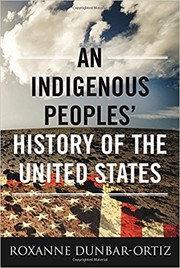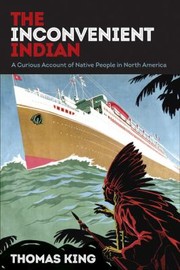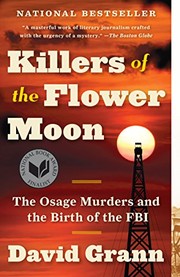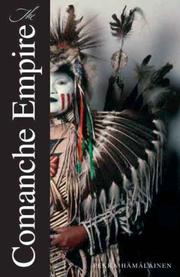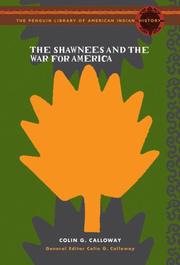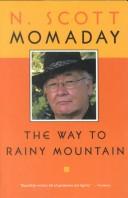Are you fascinated by the rich and diverse history of Native Americans? Look no further! We have compiled a list of the 20 best books on American Indian history that will transport you back in time and shed light on the untold stories of indigenous peoples. From gripping narratives of famous chiefs to insightful accounts of cultural traditions, these books will immerse you in the captivating world of Native American history. So, grab a cup of coffee, curl up in your favorite reading nook, and embark on a journey that will deepen your understanding of American Indian history.
Contents
- 1 An Indigenous Peoples’ History of the United States
- 2 The Heartbeat of Wounded Knee: Native America from 1890 to the Present
- 3 Empire of the Summer Moon: Quanah Parker and the Rise and Fall of the Comanches, the Most Powerful Indian Tribe in American History
- 4 Bury My Heart at Wounded Knee: An Indian History of the American West
- 5 The Earth Is Weeping: The Epic Story of the Indian Wars for the American West
- 6 The Inconvenient Indian: A Curious Account of Native People in North America
- 7 Custer Died for Your Sins: An Indian Manifesto
- 8 Killers of the Flower Moon: The Osage Murders and the Birth of the FBI
- 9 The Apache Wars: The Hunt for Geronimo, the Apache Kid, and the Captive Boy Who Started the Longest War in American History
- 10 1491: New Revelations of the Americas Before Columbus
- 11 The Comanche Empire
- 12 The Lakota Way: Stories and Lessons for Living
- 13 Black Elk Speaks: Being the Life Story of a Holy Man of the Oglala Sioux
- 14 The Cherokee Nation and the Trail of Tears
- 15 The Heart of Everything That Is: The Untold Story of Red Cloud, An American Legend
- 16 The Indian World of George Washington: The First President, the First Americans, and the Birth of the Nation
- 17 The Nez Perce Indians and the Opening of the Northwest
- 18 The Shawnees and the War for America
- 19 The Way to Rainy Mountain
- 20 The Last Stand: Custer, Sitting Bull, and the Battle of the Little Bighorn
- 21 Conclusion
An Indigenous Peoples’ History of the United States
by Roxanne Dunbar-Ortiz
Roxanne Dunbar-Ortiz’s groundbreaking book, An Indigenous Peoples’ History of the United States, challenges the traditional narrative of American history by providing a comprehensive and eye-opening account of the country’s past from an Indigenous perspective. This illuminating work offers a fresh and vital examination of the struggles, triumphs, and ongoing resistance of Native American peoples, shedding light on a side of history that has often been overlooked or misrepresented.
The Heartbeat of Wounded Knee: Native America from 1890 to the Present
by David Treuer
The Heartbeat of Wounded Knee: Native America from 1890 to the Present is a captivating and thought-provoking book on American Indian history. In this powerful exploration, author David Treuer takes readers on a journey through the tumultuous and often forgotten history of Native Americans in the United States.
Treuer’s book about American Indian history challenges the conventional narrative, shedding light on the resilience, strength, and vibrancy of Native communities in the face of colonization, forced assimilation, and ongoing struggles for sovereignty and cultural preservation. Through meticulous research and compelling storytelling, Treuer unveils the diverse experiences and perspectives of Native peoples across the country.
From the devastating massacre at Wounded Knee to the activism of the American Indian Movement, and from the impact of government policies on reservations to the resurgence of Native languages and cultures, this American Indian history book offers a comprehensive and nuanced account of the past and present struggles of Native Americans.
Through Treuer’s rich and vivid prose, readers are transported to the heart of Native communities, gaining a deeper understanding of the complex forces that have shaped their history. The Heartbeat of Wounded Knee challenges readers to reevaluate their understanding of American Indian history and to recognize the ongoing resilience and resistance of Native peoples in the face of adversity.
Whether you are an avid reader of history or simply interested in expanding your knowledge of American Indian history, this book is a must-read. Treuer’s engaging storytelling and insightful analysis make The Heartbeat of Wounded Knee a captivating journey into the often untold stories of Native America.
Empire of the Summer Moon: Quanah Parker and the Rise and Fall of the Comanches, the Most Powerful Indian Tribe in American History
by S.C. Gwynne
Empire of the Summer Moon is a captivating book on American Indian history that delves into the fascinating story of the Comanches, who were once the most powerful tribe in American history. Written by S.C. Gwynne, this gripping account takes readers on a journey through the rise and fall of the Comanches, ultimately focusing on their most renowned leader, Quanah Parker.
Gwynne skillfully paints a vivid picture of the Comanches’ way of life, their fierce warrior culture, and their relentless struggle against encroaching settlers and other tribes. The author’s meticulous research and engaging storytelling make this book about American Indian history an absolute page-turner, drawing readers into a world that is both thrilling and tragic.
Through Empire of the Summer Moon, readers gain a deep understanding of the Comanches’ impact on the American West, their strategic military prowess, and their unique ability to adapt to the changing times. Gwynne also explores the complex relationship between the Comanches and the pioneers, providing a nuanced perspective on the conflicts and alliances that shaped the history of the American frontier.
This American Indian history book is not just a chronicle of battles and conquests; it is a profound exploration of cultural clashes, resilience, and the enduring legacy of the Comanches. Whether you are a history enthusiast or simply seeking an enthralling story, Empire of the Summer Moon is a must-read that will transport you to a time when the Comanches reigned supreme.
Bury My Heart at Wounded Knee: An Indian History of the American West
by Dee Brown
Bury My Heart at Wounded Knee: An Indian History of the American West, written by Dee Brown, is a powerful and eye-opening book that delves into the often overlooked history of Native Americans in the United States. This groundbreaking book shines a light on the tragic and unjust treatment of Native Americans throughout the centuries, providing a comprehensive account of their struggles, resilience, and enduring spirit.
Brown takes readers on a journey through time, chronicling the encounters between Native American tribes and European settlers. He explores key events such as the Trail of Tears, the Sand Creek Massacre, and the Battle of Little Bighorn, among others, offering a balanced and deeply researched perspective on these tumultuous chapters of American history.
Through meticulous research and firsthand accounts, Brown brings to life the voices and stories of Native American leaders, warriors, and ordinary people who fought valiantly to protect their land, culture, and way of life. He challenges the prevailing narrative of American history and exposes the devastating consequences of colonization, broken treaties, and forced assimilation.
With vivid prose and a compassionate approach, Bury My Heart at Wounded Knee is a must-read for anyone seeking a deeper understanding of the complex and often tragic history of Native Americans. It serves as a powerful reminder of the resilience and strength of Indigenous peoples, as well as a call to recognize and confront the injustices they have endured throughout history.
The Earth Is Weeping: The Epic Story of the Indian Wars for the American West
by Peter Cozzens
The Earth Is Weeping: The Epic Story of the Indian Wars for the American West by Peter Cozzens is a captivating book on American Indian history that delves deep into the untold stories of the Native American tribes and their struggles during the tumultuous era of the American West.
This remarkable book about American Indian history takes readers on a riveting journey through the conflicts and clashes between Native American tribes and the United States government. Cozzens skillfully weaves together historical accounts, personal narratives, and extensive research to create a comprehensive and unbiased narrative of this crucial period in American history.
With meticulous attention to detail, Cozzens explores the complexities of the Indian Wars, shedding light on the diverse cultures, traditions, and perspectives of the Native American tribes. From the Sioux to the Cheyenne, the Apaches to the Navajos, each tribe’s story is told with sensitivity and respect, allowing readers to truly understand the breadth and depth of the Native American experience during this time.
What sets this American Indian history book apart is Cozzens’ ability to humanize the individuals involved in these conflicts. Through vivid character portrayals, readers witness the hopes, fears, and aspirations of both Native Americans and white settlers. Cozzens presents a balanced view of the struggles faced by both sides, challenging longstanding myths and stereotypes.
Furthermore, Cozzens’ engaging writing style brings this complex history to life. His vivid descriptions and evocative storytelling immerse readers in the landscapes, battles, and cultural clashes of the American West. The Earth Is Weeping is not just a dry recitation of facts; it is a compelling narrative that captures the imagination and emotions of its readers.
Whether you are a history buff, a student of American Indian culture, or simply someone interested in understanding the rich tapestry of the American West, The Earth Is Weeping is a must-read. This powerful book on American Indian history will forever change your perspective on the Indian Wars and the profound impact they had on the Native American tribes and the shaping of America.
The Inconvenient Indian: A Curious Account of Native People in North America
by Thomas King
The Inconvenient Indian: A Curious Account of Native People in North America by Thomas King is a captivating and thought-provoking book on American Indian history. With his signature wit and storytelling prowess, King takes readers on a journey through the complex and often overlooked history of Native people in North America.
This book about American Indian history challenges the conventional narratives and stereotypes that have shaped how we perceive Native people. King skillfully weaves together historical facts, personal anecdotes, and cultural analysis to shed light on the diverse experiences and perspectives of Native communities.
Through his engaging storytelling style, King explores a wide range of topics such as colonization, assimilation, land rights, activism, and cultural resilience. He delves into the struggles and triumphs of Native people, highlighting their ongoing fight for recognition, justice, and self-determination.
What sets this American Indian history book apart is King’s ability to infuse humor and irony into his narratives. He cleverly uses satire to expose the absurdity of certain cultural stereotypes and to challenge the dominant narratives that have shaped our understanding of Native people.
Overall, The Inconvenient Indian is a must-read for anyone interested in gaining a deeper understanding of Native history and the ongoing struggles faced by Indigenous communities. King’s unique storytelling approach and insightful analysis make this book on American Indian history both informative and enjoyable to read.
Custer Died for Your Sins: An Indian Manifesto
by Vine Deloria Jr.
‘Custer Died for Your Sins: An Indian Manifesto’ is a groundbreaking and thought-provoking book on Native American history that challenges conventional narratives and provides a fresh perspective on the struggles and triumphs of indigenous peoples.
This remarkable book about American Indian history, penned by Vine Deloria Jr., delves into the heart of the American Indian experience and confronts the injustices, stereotypes, and cultural misconceptions that have plagued Native Americans throughout history. Deloria Jr.’s powerful manifesto not only sheds light on the historical context but also exposes the ongoing issues faced by indigenous communities in contemporary society.
With a captivating writing style and unapologetic voice, Deloria Jr. weaves together personal anecdotes, historical analysis, and political commentary to create a compelling narrative that challenges readers to confront their own preconceived notions about American Indian history. His insightful exploration of the complex relationship between Native Americans and the United States government sheds light on the systemic oppression and cultural erasure endured by indigenous peoples.
By questioning the dominant narratives of American Indian history, Deloria Jr. encourages readers to critically examine the impact of colonization, forced assimilation, and discriminatory policies on Native American communities. He also emphasizes the importance of recognizing and respecting tribal sovereignty, cultural diversity, and the spiritual connections that are integral to indigenous identity.
‘Custer Died for Your Sins: An Indian Manifesto’ is a seminal work in the field of American Indian history that challenges readers to reevaluate their understanding of Native American experiences. Deloria Jr.’s insightful analysis, bold perspectives, and impassioned call to action make this book an essential read for anyone seeking a deeper understanding of the complex and rich tapestry of American Indian history.
Killers of the Flower Moon: The Osage Murders and the Birth of the FBI
by David Grann
Killers of the Flower Moon: The Osage Murders and the Birth of the FBI by David Grann is a captivating book that delves into a dark chapter of American history. This mesmerizing non-fiction work explores the shocking series of murders that targeted the Osage Nation, a wealthy American Indian community in the 1920s.
Grann meticulously unravels the sinister plot that unfolded in Osage County, Oklahoma, where members of the Osage Nation were systematically killed for their oil wealth. As the Osage people became some of the wealthiest individuals in the world due to oil discoveries on their land, they soon became the targets of a sinister conspiracy. The book uncovers the chilling truth behind these murders and the extent of the corruption that plagued the local authorities.
Grann’s investigative journalism takes readers on a thrilling journey, revealing the complexities of the case and shedding light on the racism and prejudice faced by American Indians during this time. He skillfully combines historical research, personal interviews, and compelling storytelling to create a narrative that is both informative and gripping.
Moreover, Killers of the Flower Moon explores the birth of the Federal Bureau of Investigation (FBI) and its role in solving these heinous crimes. The book showcases the pivotal role played by J. Edgar Hoover and his team in bringing justice to the Osage people and exposing the corruption that had infiltrated the local law enforcement.
This book about American Indian history not only sheds light on a forgotten chapter of our nation’s past but also serves as a powerful reminder of the resilience of the Osage Nation and their fight for justice. Grann’s impeccable storytelling and meticulous research make Killers of the Flower Moon a must-read for anyone interested in American history, true crime, or the struggles faced by indigenous communities.
The Apache Wars: The Hunt for Geronimo, the Apache Kid, and the Captive Boy Who Started the Longest War in American History
by Paul Andrew Hutton
The Apache Wars: The Hunt for Geronimo, the Apache Kid, and the Captive Boy Who Started the Longest War in American History by Paul Andrew Hutton is a captivating book that delves into the turbulent and fascinating history of the American West, particularly focusing on the Apache people and their fierce resistance against the encroachment of white settlers.
Step into a world of epic battles, daring escapes, and complex relationships as Hutton takes you on a thrilling journey through the Apache Wars. This meticulously researched book sheds light on the struggles faced by the Apache people, their leaders like Geronimo and the Apache Kid, and the impact of these conflicts on both Native Americans and the expanding United States.
With vivid storytelling and a deep understanding of the historical context, Hutton paints a vivid picture of the clash between cultures, highlighting the resilience and bravery of the Apache warriors. From the initial capture of a young boy named Felix Ward, which sparked the beginning of this long and bloody conflict, to the final surrender of Geronimo, this book covers the entire span of the Apache Wars.
What sets this book apart is Hutton’s ability to present a balanced and nuanced account of the events. He explores the motivations and perspectives of both the Apache people and the US government, providing readers with a comprehensive understanding of this chapter in American history. Hutton also delves into the impact of the Apache Wars on the broader American Indian history, shedding light on the larger struggles faced by Native American tribes during this time.
Whether you are a history enthusiast, a lover of action-packed narratives, or simply interested in gaining a deeper understanding of American Indian history, The Apache Wars is a must-read. Prepare to be transported to a time of intense conflict and cultural clashes, as Hutton brings this captivating period to life.
1491: New Revelations of the Americas Before Columbus
by Charles C. Mann
1491: New Revelations of the Americas Before Columbus by Charles C. Mann is a captivating book that takes readers on a thrilling journey through the forgotten history of the Americas. This eye-opening exploration unveils a world that was far more advanced, diverse, and interconnected than previously believed.
In this groundbreaking book about American Indian history, Mann challenges the traditional narrative of a sparsely populated, untouched wilderness before the arrival of Christopher Columbus. Through meticulous research and compelling storytelling, he presents evidence of thriving civilizations, complex societies, and advanced agricultural practices that reshapes our understanding of the pre-Columbian Americas.
Mann introduces readers to the vibrant cultures of Native Americans, from the highly organized empires of the Aztecs and Incas to the vast trade networks of the Mississippian civilization. He delves into the sophisticated engineering feats of the Maya, the intricate knowledge of medicinal plants held by indigenous peoples, and the intricate social structures that governed their societies.
This American Indian history book challenges long-held assumptions and sheds light on the immense contributions and achievements of Native Americans in shaping the Americas. Mann’s captivating narrative and meticulous research provide readers with a fresh perspective on the rich and complex history of the indigenous peoples of the Americas.
If you are fascinated by the untold stories of the past and have a thirst for knowledge about American Indian history, 1491 is a must-read. Prepare to have your preconceptions shattered and your understanding of the Americas before Columbus transformed.
The Comanche Empire
by Pekka Hämäläinen
The Comanche Empire by Pekka Hämäläinen is a groundbreaking book on American Indian history that delves into the fascinating world of the Comanche people. This captivating book about American Indian history takes readers on an extraordinary journey through the rise and fall of one of the most powerful indigenous empires in North American history.
In this meticulously researched American Indian history book, Hämäläinen introduces us to the Comanche, a tribe that transformed the plains of Texas, New Mexico, Oklahoma, and Kansas into their own domain. Through their mastery of horsemanship and warfare, the Comanche established a formidable empire that challenged and shaped the course of European colonization in the region.
With vivid storytelling and insightful analysis, Hämäläinen brings to life the complex dynamics of the Comanche Empire. He explores their tactics, political organization, economic systems, and cultural practices, shedding light on the resilience and adaptability of this indigenous nation. By examining the Comanche from their own perspective, this book offers a fresh and nuanced understanding of the Native American experience.
But The Comanche Empire is more than just a history lesson. It is a tale of survival, resistance, and the clash of civilizations. It challenges our preconceived notions of indigenous societies and invites us to reexamine the history of the American West. Hämäläinen’s meticulous research and engaging narrative make this book on American Indian history a must-read for anyone interested in understanding the deep complexities and rich cultural heritage of Native American peoples.
The Lakota Way: Stories and Lessons for Living
by Joseph M. Marshall III
Discover the rich and captivating world of the Lakota people in Joseph M. Marshall III’s “The Lakota Way: Stories and Lessons for Living.” This fascinating book takes readers on a journey through the traditions, wisdom, and values of the Lakota tribe, offering invaluable insights into their way of life.
More than just a book on American Indian history, “The Lakota Way” is a treasure trove of ancient stories, teachings, and moral lessons that are as relevant today as they were centuries ago. Marshall, a renowned Lakota storyteller and historian, shares his tribe’s wisdom through a collection of powerful narratives that captivate the imagination and touch the heart.
Each story in this American Indian history book is accompanied by insightful commentary and analysis, allowing readers to fully grasp the significance and lessons embedded within. From tales of bravery and honor to lessons on leadership, respect, and community, “The Lakota Way” offers a holistic understanding of the Lakota people’s philosophy and worldview.
Whether you are a history enthusiast, a lover of storytelling, or simply seeking wisdom and inspiration, “The Lakota Way” is a must-read. Through its pages, you will gain a deep appreciation for the Lakota culture and traditions, and perhaps even find valuable lessons that can be applied to your own life.
Embark on a transformative journey and immerse yourself in the rich tapestry of the Lakota people’s heritage. “The Lakota Way” is not just a book about American Indian history, but a timeless guide to living a meaningful and purposeful life.
Black Elk Speaks: Being the Life Story of a Holy Man of the Oglala Sioux
by John G. Neihardt
Black Elk Speaks is a captivating book on American Indian history that delves into the incredible life story of a holy man from the Oglala Sioux tribe. Written by John G. Neihardt, this book offers a unique perspective on the rich cultural heritage and struggles faced by Native Americans.
The Cherokee Nation and the Trail of Tears
by Theda Perdue and Michael D. Green
The Cherokee Nation and the Trail of Tears by Theda Perdue and Michael D. Green is an immersive and captivating book on the tumultuous history of the Cherokee people, providing a profound insight into the tragic Trail of Tears.
This remarkable work delves into the untold story of the Cherokee Nation, shedding light on the profound impact of colonization, forced removal, and the struggle for survival. It offers a comprehensive overview of American Indian history, shedding light on the resilience and strength of the Cherokee people amidst unimaginable hardships.
With meticulous research and expert storytelling, Perdue and Green transport readers back in time, recounting the Cherokee’s rich cultural heritage, their encounters with European settlers, and the subsequent erosion of their sovereignty. The authors delve into the complex political dynamics, highlighting the Cherokee Nation’s efforts to adapt to the encroaching American society while fiercely defending their land and identity.
The heart-wrenching centerpiece of this book is the Trail of Tears, an agonizing chapter in American Indian history. Perdue and Green vividly describe the forced removal of the Cherokee people from their ancestral lands in the southeastern United States to the unfamiliar and harsh lands of present-day Oklahoma. The authors capture the harrowing journey, the immense suffering endured, and the devastating loss of thousands of lives along the way.
Through their expertly crafted narrative, Perdue and Green honor the resilience and bravery of the Cherokee people, bringing to light a crucial chapter in American Indian history that has often been overlooked. Drawing upon a wealth of primary sources and oral histories, they present a balanced and compassionate account that invites readers to reflect upon the injustices inflicted on the Cherokee Nation.
The Cherokee Nation and the Trail of Tears is an essential read for anyone interested in American Indian history, shedding light on the enduring legacy of the Cherokee people and the tragic consequences of colonization. This book serves as a testament to the strength of the human spirit and the ongoing struggle for justice and recognition.
The Heart of Everything That Is: The Untold Story of Red Cloud, An American Legend
by Bob Drury and Tom Clavin
The Heart of Everything That Is: The Untold Story of Red Cloud, An American Legend is an extraordinary book on Native American history that delves into the captivating life of Red Cloud, a legendary figure in American Indian history. Written by Bob Drury and Tom Clavin, this remarkable work brings to light the often overlooked struggles, triumphs, and legacy of one of the most influential Native American leaders.
Unlike any other book about American Indian history, The Heart of Everything That Is takes readers on a thrilling journey through the heart of the Great Plains, where Red Cloud rose from humble beginnings to become one of the most powerful and respected Lakota chiefs. With meticulous research and vivid storytelling, the authors paint a vivid picture of the rich culture, traditions, and relentless battles that shaped Red Cloud’s life and the destiny of his people.
Through this compelling narrative, readers gain a deeper understanding of the complexities and challenges faced by Native American tribes during the tumultuous era of westward expansion. The book provides a comprehensive exploration of the conflicts between the Lakota Sioux and the United States government, revealing the injustices and betrayals endured by Red Cloud and his people.
By weaving together historical accounts, firsthand testimonies, and Red Cloud’s own perspective, Drury and Clavin offer a fresh and balanced view of American Indian history. They shed light on the resilience and courage of the Lakota Sioux, as well as the lasting impact of Red Cloud’s advocacy for Native American rights and sovereignty.
With its enthralling storytelling and meticulous attention to detail, The Heart of Everything That Is is a must-read for anyone seeking a deeper understanding of American Indian history. This groundbreaking book not only brings Red Cloud’s extraordinary life to the forefront but also shines a light on the broader struggles and triumphs of Native American tribes throughout history.
The Indian World of George Washington: The First President, the First Americans, and the Birth of the Nation
by Colin G. Calloway
The Indian World of George Washington: The First President, the First Americans, and the Birth of the Nation by Colin G. Calloway is a captivating book on American Indian history that delves deep into the often overlooked relationship between Native Americans and the founding father of the United States.
In this remarkable book about American Indian history, Calloway brings to light the crucial role that Native Americans played in shaping the young nation. Through extensive research and compelling storytelling, he reveals the complex interactions, alliances, and conflicts between George Washington and various Native American tribes.
By exploring the perspectives and experiences of both Native Americans and Washington himself, Calloway presents a nuanced and comprehensive understanding of the early years of the United States. He challenges common misconceptions and provides a fresh lens through which to examine the nation’s founding.
This American Indian history book not only sheds light on the interactions between Native Americans and Washington, but it also delves into the diverse cultures, languages, and societies of the indigenous peoples of North America. Calloway’s in-depth research and engaging narrative make this book an essential read for anyone interested in understanding the complex history of the United States and its native inhabitants.
The Indian World of George Washington is a thought-provoking and eye-opening exploration of a crucial aspect of American history that has been too often overlooked. By examining the rich tapestry of Native American history and its intersection with the birth of the nation, Calloway offers readers a deeper understanding of the complexities and contradictions that shaped the United States.
The Nez Perce Indians and the Opening of the Northwest
by Alvin M. Josephy Jr.
Are you ready to embark on a fascinating journey into the rich and complex world of the indigenous peoples of America? Look no further than “The Nez Perce Indians and the Opening of the Northwest” by Alvin M. Josephy Jr., a captivating book on American Indian history.
In this enthralling exploration of the Nez Perce Indians and their pivotal role in shaping the Northwest, Josephy delves deep into the heart of American Indian history. Through meticulous research and vivid storytelling, he brings to life the struggles, triumphs, and cultural heritage of the Nez Perce people.
As you turn the pages of this illuminating work, you will be transported to a time when the Northwest was a wild frontier, teeming with opportunities and challenges. From the early encounters between the Nez Perce and European explorers to the tumultuous conflicts that arose during the westward expansion, Josephy expertly weaves together historical accounts, personal narratives, and cultural analysis to paint a comprehensive picture of this fascinating period in American history.
But this book is more than just a chronicle of events; it is a celebration of the resilience and spirit of the Nez Perce Indians. Through their stories, we gain a deeper understanding of the profound impact that colonization and assimilation had on Native American communities, as well as their ongoing fight for cultural preservation and recognition.
If you have an interest in American Indian history, this book is a must-read. Josephy’s masterful storytelling and profound insights will captivate your imagination and leave you with a newfound appreciation for the rich tapestry of indigenous cultures that have shaped our nation.
The Shawnees and the War for America
by Colin G. Calloway
The Shawnees and the War for America by Colin G. Calloway is a captivating book on American Indian history that delves into the tumultuous era of colonial America. With meticulous research and an engaging narrative, Calloway takes readers on a journey through the lives of the Shawnee tribe and their pivotal role in shaping the continent’s history.
This riveting book about American Indian history explores the Shawnees’ struggle to maintain their ancestral lands in the face of relentless European expansion. From the early encounters with European traders to the harrowing battles against colonial settlers, Calloway vividly portrays the Shawnees’ resilience and determination to protect their way of life.
Through his expert storytelling, Calloway provides a nuanced understanding of the Shawnee people, their rich cultural traditions, and their complex relationships with other tribes and European powers. Drawing from a wide range of primary sources, he paints a vivid picture of the challenges and triumphs that defined the Shawnees’ experience during this pivotal period in American Indian history.
What sets this American Indian history book apart is Calloway’s ability to seamlessly weave together multiple perspectives. He presents the viewpoints of Shawnee leaders, European colonists, and other Native American tribes, allowing readers to grasp the intricate web of alliances, rivalries, and power struggles that shaped the continent.
Overall, The Shawnees and the War for America is a captivating read that sheds light on a lesser-known chapter of American Indian history. It is a must-read for anyone interested in understanding the complexities of colonial America and the profound impact it had on Native American tribes.
The Way to Rainy Mountain
by N. Scott Momaday
The Way to Rainy Mountain is a captivating book on American Indian history that takes readers on a mesmerizing journey through the past. Written by N. Scott Momaday, a renowned Native American author, this enchanting literary work weaves together personal memoir, historical accounts, and traditional folklore to create a rich tapestry of the Native American experience.
In this extraordinary book about American Indian history, Momaday explores the ancestral lands of his Kiowa tribe, providing a deeply moving and insightful glimpse into their customs, beliefs, and way of life. The author’s lyrical prose effortlessly transports readers to a world where oral tradition collides with written history, offering a profound understanding of the Native American culture that is both educational and thought-provoking.
Throughout the pages of The Way to Rainy Mountain, Momaday’s vivid descriptions and poetic language breathe life into the stories of his ancestors, painting a vivid picture of their struggles, triumphs, and enduring connection to the land. From the migration of the Kiowa people to the sacred Rainy Mountain, to the devastating impact of European colonization, this American Indian history book delves into the complexities of Native American identity and the resilience of indigenous communities.
With its seamless blend of personal reflection, historical analysis, and traditional storytelling, The Way to Rainy Mountain is a must-read for anyone seeking a deeper understanding of the Native American heritage. Through the author’s evocative prose and profound insights, readers are granted a glimpse into a world that is both ancient and timeless, reminding us of the enduring power and significance of Native American history.
The Last Stand: Custer, Sitting Bull, and the Battle of the Little Bighorn
by Nathaniel Philbrick
The Last Stand is an enthralling book on American Indian history that takes readers on a captivating journey through one of the most iconic battles in American history – the Battle of the Little Bighorn. Written by acclaimed author Nathaniel Philbrick, this gripping narrative delves deep into the clash between General George Armstrong Custer and the Lakota Sioux leader Sitting Bull.
With meticulous research and vivid storytelling, Philbrick brings to life the events leading up to the historic battle, capturing the political tensions, cultural clashes, and personal rivalries that culminated in a fateful confrontation on the plains of Montana. Drawing from both Native American and American accounts, the author offers a balanced perspective that sheds light on the complexities of this pivotal moment in American Indian history.
Philbrick paints a vivid portrait of the larger-than-life figures involved in the battle, from the audacious and ambitious Custer to the defiant and visionary Sitting Bull. He explores the motivations and strategies of both sides, revealing the deep-rooted conflicts and hopes that drove them forward. Through his meticulous research, Philbrick unravels the myths and misconceptions surrounding the battle, providing a nuanced understanding of the events that unfolded.
More than just a retelling of a famous battle, The Last Stand delves into the wider implications of the conflict. Philbrick examines the lasting impact of the Battle of the Little Bighorn on Native American tribes, the repercussions for the United States government, and the subsequent changes in the way the American West was settled. This book about American Indian history offers a comprehensive exploration of the complex and often tragic interactions between Native Americans and European settlers.
With its compelling narrative and thought-provoking analysis, The Last Stand is a must-read for anyone interested in American Indian history and the tumultuous era of westward expansion. Philbrick’s masterful storytelling brings to life a pivotal moment in American history, shedding light on the events that shaped the nation and forever changed the lives of those involved.
Conclusion
In conclusion, these 20 books about American Indian history provide a comprehensive and enlightening exploration of the rich and complex narratives of Native American communities. From their ancient origins to their contemporary struggles and triumphs, these books offer a diverse range of perspectives and voices that aim to challenge stereotypes and deepen our understanding of Native American history and culture. Whether you are a history enthusiast or simply curious about this often overlooked aspect of American history, these books are sure to captivate and educate. So, grab a copy today and embark on a fascinating journey through the pages of these remarkable books about American Indian history.
